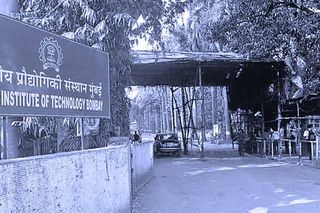
IIT Fumbles Sexual Harassment Accusations Against Senior Student
Apparently, anonymous complaints don’t warrant internal action.

Fifteen current Indian Institute of Technology-Bombay students have accused a final-year engineering student of sexual harassment. One of these students spoke to The Quint anonymously about the university’s lack of action, despite his and other students’ repeated attempts to draw the matter to the administration’s attention.
In an incident that sounds more like assault than harassment, one student told The Quint that the accused student, who was a senior at the time, took the complainant, who was a freshman, back to his room and forced himself on the younger man.
The accused student was a teaching assistant to first- and second-year students. The Dean of Student Affairs, Soumyo Mukherji, had also appointed him to be a student mentor in the college’s Institute Student Mentor Program. His role included guiding younger students in academic and professional matters at the university. In a formal letter to Mukherji last week, obtained by The Quint, the complainant said the freshmen would call the senior “machau,” or God.
Prior to the letter, the senior student had formally brought the issue to Mukherji. According to the student, three or four months later, Mukherji held a meeting with the college’s Disciplinary Actions Committee to discuss the allegations. After the meeting, the Dean simply removed the accused senior from his position as ISMP mentor, according to the complainant, which felt inconsequential given that his alleged harasser had already been accepted to another college for further studies. No other action was taken.
In the letter to Mukherji, the complainant asked for justice for himself and the other students who had been harassed. He told The Quint the sexual harassment was continuous, despite his attempts to ignore the senior. During the university’s music festival, the accused harasser made unwarranted comments, such as asking the younger man to “lick his tongue while kissing.”
Other students also wrote complaint letters to Mukherji via social media last week. The Quint reports that the complainant also wrote one on IIT-Bombay’s student confessions Facebook page anonymously. According to the post, the accused only targeted male students, usually freshmen. “After all, we have always been made to believe that men can’t be harassed,right [sic]?” the post reads.
“Even if something happens, you don’t talk about it because it’s okay as he was a man too. Don’t be a girl and cry about it. Bullshit,” the post continues. “But this one person brings it up. And then more victims are identified. And the case is taken up to DAC, with at least 15 victims ready to testify. (Believe me, the actual number is much worse).”
In response to this, the Dean allegedly called and pressured the student administrator of the page to shut it down. IIT alumni then took control of the page. “Sexual harassment complaints from students of IIT Bombay are being pushed under the carpet. Please investigate and take action,” one alumnus tweeted.
According to The Quint, the accused is a current student at IIT-Bombay, but Mukherji gave a statement, published in the Free Press Journal, saying he has graduated. “This student has completed his graduation from IIT-B and is currently not studying in the institute,” Mukherji’s statement said. But according to the complainant, Mukherji was aware of the accusations while his harasser was still attending IIT.
“We initiated an investigation and took action in March,” continued Mukherji, referring, presumably, to the accused student’s removal from his ISMP position. “Now, we have again received complaints but we cannot take any action based on anonymous complaints,” he said. “We want students to come ahead and mention their names and give a deposition. They should not fear, if they have not done anything wrong.”
His point is valid only in that IIT-Bombay cannot approach the police or take legal action against the accused harasser based on anonymous complaints. But Mukherji fails to acknowledge that further probing and action could have been taken by the university in this instance. Instead, his words put the onus of investigation on possible victims, and his actions, as recounted by students, have done nothing to support the action he expects of them. Survivors of sexual abuse already routinely feel shame, or as though they are somehow responsible for their assault or harassment — that they’ve ‘done something wrong’ and invited their abuse. As the complainant wrote in his Facebook post, same-sex assault often brings up a fear of persecution — especially given that homosexual acts are illegal in India. “[Other survivors] will come forward if they want to and nobody has the right to force them,” the complainant wrote.
The school could have established a process to collect on-the-record accounts from possible victims in a way that also ensured their identities would be protected. It could have then taken a more considered decision in its handling of the accused harasser. If the senior student was falsely accused, an acquittal is the least the university owes him; if he was justly accused, his immediate expulsion is the least the university owes the students it placed under the influence of an abuser.
Instead, the institution’s actions suggest what it owes its students is the least of its concern. Ironically, however, if Mukherji and other IIT administrators are acting to protect the reputation of the institution, with this spectacular display of ignorance and indifference, they have likely only acted to its detriment.
“We all know this man is not the only one. If not harassment, some serious misuse of power is not that rare in [IIT],” wrote the accusing student. “Why aren’t we talking about it? Who’s stopping us? The fear that our college’s reputation will not be the same if this comes out? Seriously? It’s time.”
Urvija Banerji is the Features Editor at The Swaddle, and has previously written for Rolling Stone India and Atlas Obscura. When she's not writing, she can be found in her kitchen, painting, cooking, picking fights online, and consuming large amounts of coffee (often concurrently).
Related


Transgender Teacher Asked If Breasts Are Real in Kolkata School Interview
